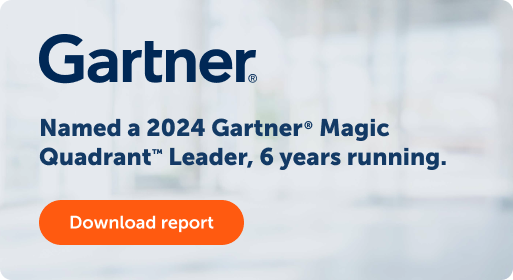- Products
Automate any process, anywhere Streamline complex, mission-critical workflows with the Agentic Process Automation System. Explore the Platform Explore the Platform
- AI System
- Build AI Agents
Automate advanced tasks with AI Agent Studio.
- Streamline workflows
Rapidly design and deploy with Automator AI.
- Process complex documents
Extract and organize data with Document Automation.
- Discover opportunities
Identify inefficiencies with Process Discovery.
- Orchestrate automations
Centralize initiatives with Automation Workspace.
- Build AI Agents
- Automation System
- Govern programs
Establish frameworks and oversight with CoE Manager.
- Automate from any app
Get AI-powered assistance with Automation Co-Pilot.
- Speed workflows with cloud
Power instant data exchange with serverless Automation Anywhere Cloud Service
- Unify systems
Connect applications and workflows with seamless integrations.
- Govern programs
- View all Products
-
- Solutions
Featured Solutions
 Google Cloud Google Cloud and Automation Anywhere empower enterprises to fast-track their AI + Automation journey. Google Cloud
Google Cloud Google Cloud and Automation Anywhere empower enterprises to fast-track their AI + Automation journey. Google Cloud Amazon Web Services Streamline workflows, reduce costs, and make automating even easier when you combine the Agentic Process Automation System with AWS Amazon Web Services
Amazon Web Services Streamline workflows, reduce costs, and make automating even easier when you combine the Agentic Process Automation System with AWS Amazon Web Services- By Industry
- By Function
- By Technology
- View all AI Solutions
-
- Resources
Get Community Edition: Start automating instantly with FREE access to full-featured automation with Cloud Community Edition.
Featured
 Named a 2024 Gartner® Magic Quadrant™ Leader for Automation. Celebrating Six Years of Recognition as a Leader. Download report Download report
Named a 2024 Gartner® Magic Quadrant™ Leader for Automation. Celebrating Six Years of Recognition as a Leader. Download report Download report - Customers
New & improved certifications
 Give yourself a competitive advantage with Automation Anywhere's industry-recognized certifications.Explore Certifications Explore Certifications
Give yourself a competitive advantage with Automation Anywhere's industry-recognized certifications.Explore Certifications Explore Certifications - Company
Get in touch with us Get help, know more, learn, ask questions, or just say Hi! Contact Us Contact Us
- Get To Know Us
- Announcements
- Society
-
Blog
4 Top RPA Jobs and Where to Get Trained

It’s no secret that technology is changing the workforce — and opening a slew of new jobs. In fact, McKinsey & Company predicts “demand for technological, social and emotional, and higher cognitive skills will rise by 2030.”
Robotic Process Automation (RPA) jobs are some of the most in demand. And the need for RPA-trained and skilled personnel is global. India, for example, has approximately 6,000 RPA job openings — the most in the world, according to DRAUP. 
Now is the perfect time to get trained for a job of the future. Let’s look at four of the top RPA jobs:
1. RPA developer
Sometimes referred to as RPA engineers or RPA software engineers, RPA developers are involved in the design, development, implementation, and maintenance of automation solutions. They’re the experts on the RPA platform and understand the minute details of what makes a bot operate, regardless of the routine.
They also help with process design and creating process documentation, in addition to assuring automation quality. McKinsey expects this area to grow as much as 90% between 2016 and 2030. And the LinkedIn 2020 Emerging Jobs Report ranks robotics engineer roles as the No. 2 emerging job (after artificial intelligence (AI) specialist).
Skills required:
RPA developers require basic programming knowledge and development experience. Knowledge of AI and machine learning helps, as does database experience and an understanding of workflow-based logic.
How to prepare:
The Bot Developer learning trail at Automation Anywhere University (AAU) includes six courses ranging from an hour to three hours in length that will help prepare you for an RPA developer role. You’ll gain the core knowledge needed to start developing and deploying bots, from building your first bot to creating bots with sophisticated functionality.
2. RPA solution architect
RPA solution architects are vital to the success of RPA implementations. It’s their job to make sure the deployed RPA solution works as planned, with no glitches. This role is key in translating automation requirements into a fleshed-out sequence that follows RPA best practices.
The RPA solution architect builds out the workflows to be automated, works with developers to help troubleshoot any issues that arise, and oversees the testing phase to ensure the solution functions as intended and complies with regulations. Additionally, the solution architect continuously monitors the automation.
Skills required:
Ideally, an RPA solution architect should have at least five years of programming experience and a solid understanding of business processes and technical architectures. Infrastructure knowledge is also key, as are strong conceptual and analytical skills.
How to prepare:
AAU’s Solution Architect program includes seven one- to three-hour courses to help you train for an RPA solution architect role. You’ll learn everything you need to know to identify bots that perform a specific task and how to thread bots together to complete a workflow and get your desired outcome.
By the end of the training, you’ll be equipped to deploy bots across machines, automate Citrix and SAP business processes, and ensure high availability and disaster recovery.
3. RPA business analyst
Before processes can be automated, the best candidates have to be identified. Business analysts are instrumental to this task. Once those processes are identified and prioritized, the business analyst works as a liaison between developers and the business unit providing the process requirements.
When developers present an RPA solution, the business analyst compares it to the initial requirements to confirm it matches all the criteria.
Skills required:
Business and industry knowledge is imperative for success in a business analyst role. Excellent communication, forward-looking vision, and analytical skills are also required. Knowledge of multiple domains helps, and business analysts should stay aware of new technologies and best practices.
How to prepare:
The Business Analyst learning trail at AAU will teach you how to analyze business processes and understand dependencies. The program covers key tenets of the process maturity model used to identify how effective a given practice actually is — and where improvements can be made.
The three in-depth courses lasting one to three hours each also guide you through building bots that complete specific tasks, such as extracting data from a website, to help you understand how basic commands and functionalities can be applied to different tasks.
4. RPA specialist
RPA specialists, as their title implies, specialize in RPA. They understand what it is, where they can apply it, the basic tools needed, and end-to-end processes. These RPA experts are trained to build a bot from scratch, perform routine maintenance, and create custom fixes to keep automation solutions running.
Skills required:
Knowledge of RPA is a must, as is software development experience and the ability to communicate business and technical concepts. Analytical skills are a plus. Domain and database knowledge are also helpful. And, you’ll need a desire to keep learning.
How to prepare:
The AAU Technical Support Specialist curriculum will give you a good start on your RPA career path. In the four courses ranging from two to eight hours in length, you’ll learn the basics of RPA and how to build a bot — and receive specialized training for the role, including how to set up and maintain an automation platform for an enterprise.
RPA developers, business analysts, solution architects, and specialists are among the most in-demand jobs in RPA today. Automation Anywhere University will equip you for success in any of these roles, and more.
Get RPA-trained and certified.
About Mary Beth Perrot
A marketing professional with extensive experience in education and tech product marketing, go-to-market strategy, sales enablement, and solutions marketing.
Subscribe via Email View All Posts LinkedInGet to know the Agentic Process Automation System.

For Students & Developers
Start automating instantly with FREE access to full-featured automation with Cloud Community Edition.



